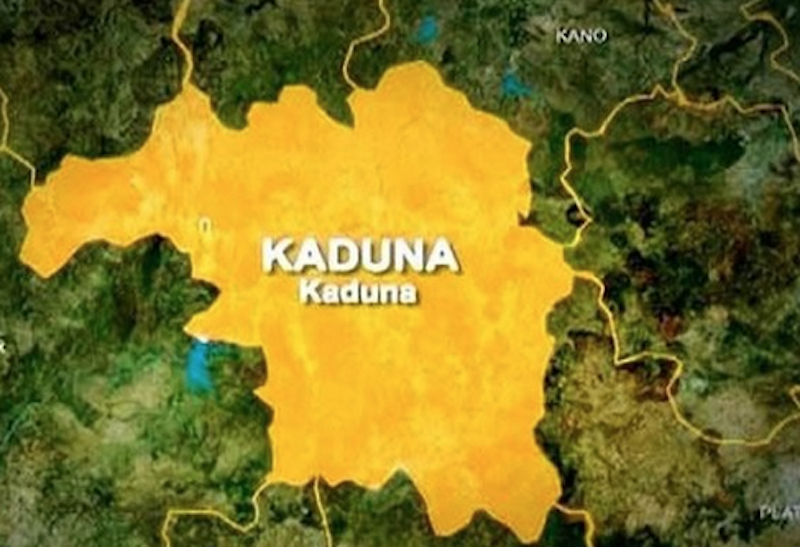On a quiet Thursday morning in Kaduna State, a major breakthrough was recorded in the ongoing fight against terror and banditry. Acting on credible intelligence, troops of the 37 Nigerian Defence Academy (NDA) Demonstration Battalion intercepted a vehicle along the Kauya–Old Afaka–Sabon Birni axis in Igabi Local Government Area, arresting three suspected terrorists and gunrunners. The suspects—Yakubu Jilbril (45), Abubakar Yahaya (45), and Isiya Sani (30), were found in possession of a cache of arms and ammunition suspected to be destined for criminal elements operating in the forested outskirts of Kaduna. This successful operation was not an isolated incident, it was the latest in a string of security gains under the watch of Governor Uba Sani, whose administration has prioritized strategic partnerships between state and federal security agencies, intelligence-driven operations, and community-based vigilance. Since assuming office, Governor Sani has made security and public safety a cornerstone of his administration. Recognizing that insecurity, particularly banditry, terrorism, and kidnapping, was hampering economic activity and disrupting education in the state, Governor Sani adopted a multi-layered security approach. Central to his plan has been close coordination with the military, Nigeria Police Force, Civil Defence Corps, and local vigilante groups. His government’s investment in intelligence gathering, community trust-building, and technology-enabled security infrastructure has yielded tangible results. The arrest of the three suspects this week is a direct reflection of this new synergy. The quick mobilization of NDA troops and the effective use of local intelligence were made possible, in part, by policies enacted to foster cooperation between citizens and security forces—a major theme of Governor Sani’s leadership. Speaking on the operation, Major General Markus Kangye, Director of Defence Media Operations, commended the troops and emphasized the importance of collaborative intelligence: “The swift response of our forces reflects improved intelligence channels and operational readiness, made more effective by strong support from local governance structures.” Kaduna has long been one of the most volatile regions in Nigeria’s northwest, plagued by recurring episodes of banditry, kidnapping, and insurgency. The Igabi Local Government Area, in particular, has been a flashpoint. Yet under Governor Uba Sani’s leadership, the narrative is slowly changing. His administration has implemented reforms to digitize surveillance, improve patrol response times, support military deployments, and most critically, rebuild trust between security agencies and local communities. “The governor’s calm but firm leadership style has created an enabling environment for joint operations like these,” said Dr. Habiba Abdullahi, a security analyst based in Zaria. “You can’t overstate the value of civil-military relations, and Governor Sani has been deliberate in fostering that.”
Beyond responding to incidents, the governor has laid the groundwork for long-term stability in the state. Among his key initiatives: Creation of the Kaduna State Security Trust Fund, which supports security operations with logistics, vehicles, and intelligence tools; launch of the community policing framework, which empowers traditional and community leaders to provide early warning signals. Also, deployment of smart surveillance technology in urban areas like Kaduna North and Chikun to deter crime, and regular security council meetings, where the governor brings together military and civilian stakeholders to assess threats and responses, have all been pivotal in the fight against terror and other violent crimes in the state. Through these efforts, Kaduna has recorded a decline in rural school abductions, improved security around its transportation corridors, and increased farmer confidence during planting seasons. Residents of Igabi and nearby Afaka say the arrest of the suspected gunmen offers renewed hope. “Governor Sani has been very active,” said Malam Idris Abubakar, a local farmer. “Now we see real efforts. There’s more military presence, and these arrests show that things are changing.” Social media was abuzz following the arrest, with hashtags like #SecureKaduna and #UbaSaniDelivers trending. Many Nigerians praised the synergy between the state government and the Armed Forces. Chief of Defence Staff, General Christopher Musa, also weighed in, applauding the troops and reaffirming the Armed Forces’ commitment to partnering with state governments like Kaduna’s to enhance national security. “This resolute action sends a clear message to all criminal elements,” Gen. Musa said. “The Nigerian Armed Forces are unwavering in their mission to protect citizens, and the support of proactive leaders like Governor Uba Sani makes our job easier and more effective.” He also reiterated the military’s intention to build on this momentum with more intelligence-led raids and surveillance activities throughout the region. The suspects are currently in military custody, and investigations are underway to determine the scope of their network and affiliations. Authorities are confident the arrest will lead to more crackdowns in the coming weeks. “The interrogation process will reveal more about where the weapons came from, who sent them, and how widespread the network is,” said a security source. “This arrest is just the beginning.”
As Kaduna continues to recover from years of insecurity, the arrest of these suspects is a symbolic win—not just for the military, but for a state government that has taken a hands-on approach to security. Governor Sani’s strides in mobilizing local intelligence, supporting military operations, and rebuilding community trust. Though the road ahead remains challenging, the progress made so far offers a model for other states battling similar threats. In this crucial hour, the partnership between the state government and the military may well be Kaduna’s most potent weapon—not just against terror, but in building lasting peace.


